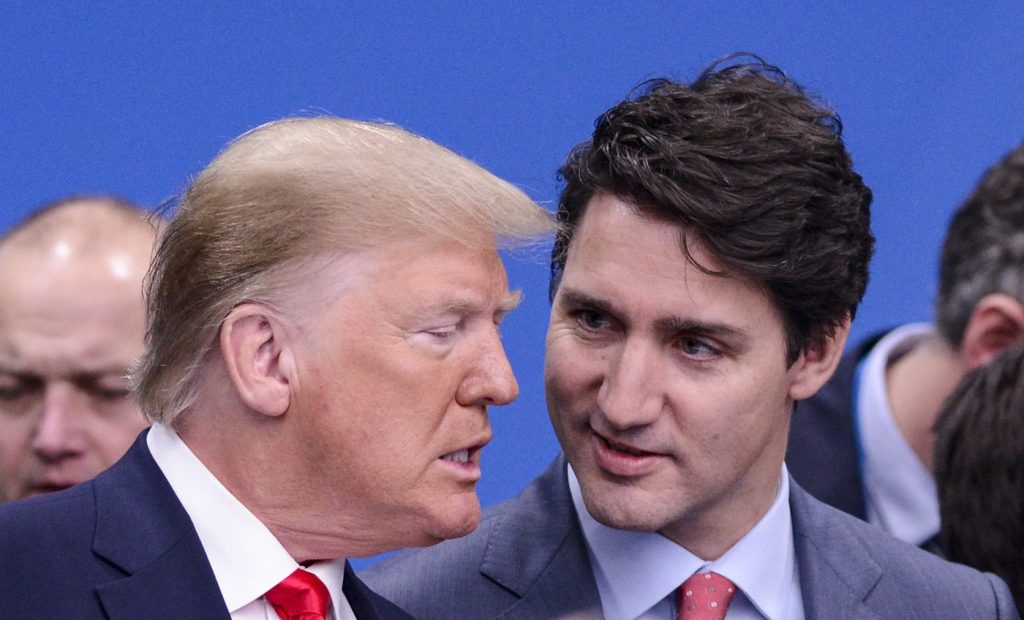Washington – In early November 2024, then-Prime Minister Justin Trudeau prepared for his inaugural phone conversation with the newly re-elected U.S. President Donald Trump. A briefing note preceding this call highlighted the likelihood that Trump would aim to revisit the Canada-U.S.-Mexico Agreement (CUSMA)— this move was anticipated just a few weeks before Trump issued threats of sweeping tariffs that could adversely affect the economy.
The briefing note outlined that Trump was expected to bypass the formal review of CUSMA scheduled for 2026. Canadian officials expressed a strong preference for any review to remain "narrow and targeted." However, they braced for various scenarios, including potential efforts from the Trump administration to renegotiate aspects of the trade agreement or to reassess its entirety.
This partially redacted briefing note, obtained by The Canadian Press through the Access to Information Act, shed light on the preparations made for Trudeau’s call with Trump. Among the suggested talking points were congratulations on Trump’s "historic election win" and commendations of his "amazing campaign." Trudeau was encouraged to express a desire to collaborate on key issues, particularly in trade and economics, which encompassed CUSMA, the protection of energy infrastructure, and the fortification of supply chains to diminish reliance on "hostile states."
Economic security was flagged as a critical issue for the incoming Republican administration, transcending conventional economic policy to touch on national security concerns. The note emphasized the importance of this matter, setting the stage for the dynamics of future discussions between the leaders.
Following the November call, the Prime Minister’s Office released a summary indicating that Trudeau and Trump conversed about the “enduring and successful partnership” between Canada and the United States. They also noted a shared interest in secure and reliable supply chains, as well as addressing unfair trading practices globally.
However, Canada quickly found itself targeted by Trump. On November 25, the President threatened steep tariffs on Canadian imports, alleging a connection to the flow of fentanyl across the border. Yet, U.S. government statistics indicated that the volume of fentanyl crossing into the U.S. from Canada was negligible, and a recent annual threat assessment did not reference Canada in relation to fentanyl issues.
Consequently, Trudeau and Trump engaged in multiple discussions, with Trudeau even visiting Trump’s Mar-a-Lago resort in Florida late in 2024 to negotiate against the impending tariffs. Despite Canada increasing border enforcement measures, the nation was ultimately subjected to broad tariffs of 25 percent, alongside a 10 percent levy on Canadian energy, enacted earlier this month—though these duties saw a temporary suspension shortly thereafter. In addition, following that week, Trump announced a 25 percent tariff on all steel and aluminum imports from Canada.
During a recent Senate intelligence committee hearing, U.S. Director of National Intelligence Tulsi Gabbard acknowledged Mexico as the primary threat concerning fentanyl, indicating a lack of specific data about Canada in this regard.
Trump has consistently voiced concerns over trade imbalances and threatened to leverage “economic force” to compel Canada toward becoming a U.S. state. Canadian officials have interpreted these aggressive tariffs as steps intended to destabilize the Canadian economy, potentially facilitating an annexation process.
Experts suggest that Trump's tariffs against Canada and Mexico serve as a tool to unsettle both nations ahead of the mandated review of the trilateral trade agreement. His ongoing and capricious threats echo tactics employed during the original CUSMA negotiations in his first term. Although Trump proposed a 25 percent tariff on the Canadian auto sector during discussions in 2018, it was never enacted; however, he did successfully impose tariffs on steel and aluminum imports. These tariffs remained a point of contention until Canada and Mexico negotiated exemptions, culminating in the signing of a new trilateral trade deal that replaced the North American Free Trade Agreement nearly a year later.










